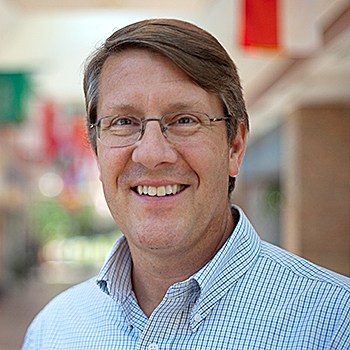Phone
Additional Information
Dr. Savage is now the Walter L. Robb Family Endowed Chair in the Department of Chemical Engineering at Penn State University -60 Fenske Laboratory
University Park, PA 16802-4400
Education
University of Delaware
PhD CHE ’86
MChE ’83
Pennsylvania State University
BS ’82
Experience
Positions Held at U-M
Interim Chair, Department of Chemical Engineering, (2014)
Professor, Department of Chemical Engineering, (1998-present)
Arthur F. Thurnau Professor, (1997-present)
Associate Professor, Department of Chemical Engineering, (1992-1998)
Positions Held Elsewhere
Graduate Research Assistant, Chemical Engineering Department, University of Delaware. (June 1983-August 1986)
Industrial Intern – Consultant, Engineering Service Division, E. I. du Pont de Nemours and Co. (June 1982-February 1983)
Professional Service
Editor-in-Chief – Ind. Eng. Chem. Res., (2014 – present)
Associate Editor – Ind. Eng. Chem. Res., (2012-present)
Associate Editor – AIChE Journal, (2005-2012)
Director – Env. Division of AIChE, (2013 – 2015)
Chair sequence – IEC division of ACS, (2010-2012)
Chair sequence – Catalysis & Rxn Eng Div AIChE, (2006-2009)
Chair sequence – Green Chemistry & Engineering subdivision ACS, (2007-2009)
Editorial Board – J. Supercritical Fluids, (1999-present)
Editorial Board – Env. Prog., (2000-present)
Editorial Board – Energy & Fuels, (1994-1996, 2007-present
Advisory committee for Penn State Chem. Eng. Dept., (2000-2005)
Research Interests
Sustainable Production of Energy and Chemical Products: Green Chemistry & Green Engineering
Our reliance on petroleum for chemical products and energy is not sustainable. Also, industrial chemical processes could be made both more profitable and more environmentally friendly if they produced less waste. Our research group investigates chemical reaction systems that are important for sustainable chemical synthesis and energy production. The research is aimed at reducing the environmental impact of these vital activities. We often use high-temperature liquid water as the reaction medium, and we avoid the use of organic solvents. Replacing organic solvents now used in commercial chemical processes with high-temperature liquid water would result in “greener” processes.
Our current focus is on energy production from renewable resources. We are developing novel processes for converting biomass (e.g., algae, lignocellulosic material) into hydrogen, methane, and liquid transportation fuels. These strategies involve chemical reactions, both catalyzed and uncatalyzed, in water near or above its critical point. We also do fundamental kinetics studies and mechanistic work to build a better understanding of chemistry.
Our goals are to resolve the reaction networks, determine the kinetics for the different steps in the network, and probe the reaction mechanism. Accomplishing these goals provides the reaction engineering information needed for process design and optimization and also provides fundamental, molecular-level details about the reaction chemistry.
Courses Taught
ChE 230 – Thermodynamics I
ChE 330 – Thermodynamics II
ChE 343 – Separations Processes
ChE 344 – Chemical Reaction Engineering
ChE 444 – Applied Chemical Kinetics
ChE 460 – Chemical Engineering Lab II
ChE 487 – Chemical Process Design II
ChE 490 – Undergraduate Research Problems
ChE 528 – Chemical Reaction Engineering
ChE 595 – Chemical Engineering Research Survey
ChE 628 – Industrial Catalysis
ChE 686 – Environmental Sustainability
ChE 696 – Applied Chemical Kinetics
Continuing Education Courses
“Reaction Kinetics for the Practical Engineer” (with F. G. Helfferich) AIChE Continuing Education Course, 3-day course.
“Reaction Engineering and Applied Catalysis” (with L. T. Thompson) University of Michigan Engineering Summer Course, 3-day course.
Awards
National/State Awards
- Giuseppe Parravano Memorial Award for Excellence in Catalysis Research, 2014
Michigan Catalysis Society - Research Excellence in Sustainable Engineering Award, American Institute of Chemical Engineers (AIChE) Forum for Sustainable Engineering, 2014
- ACS Fellow – 2012
- AIChE Fellow – 2010
- Michigan Green Chemistry Governor’s Award – 2009
- Catalyst Award from American Chemistry Council for excellence in chemical education, 2001
University Awards
- Rackham Distinguished Graduate Mentor Award, 2006
- CASE Professor of the Year Nominee for U-M, 2005
- Amoco Faculty Teaching Award, 1996
College of Engineering Awards
- Education Excellence Award, 2007
- Research Excellence Award, 1997
- Teaching Excellence Award, 1995
- Tau Beta Pi Outstanding Teaching Award (selected by Tau Beta Pi students), 1991
- Class of 1938E Award, 1990
